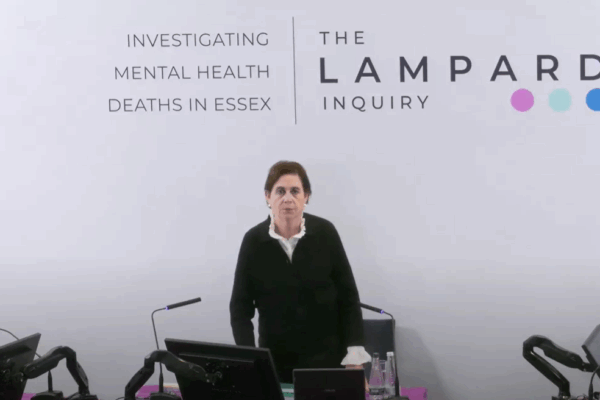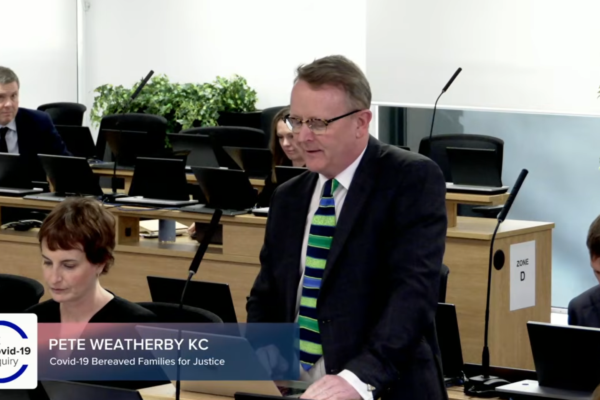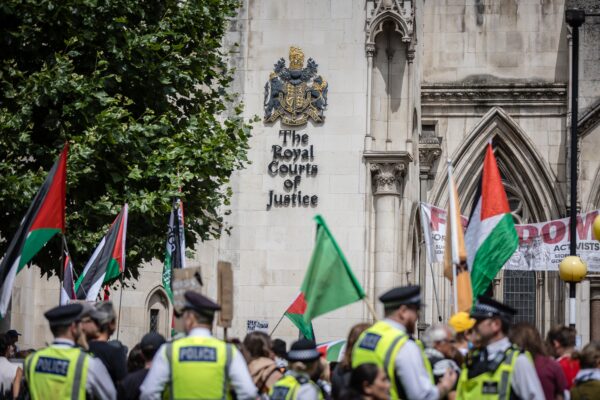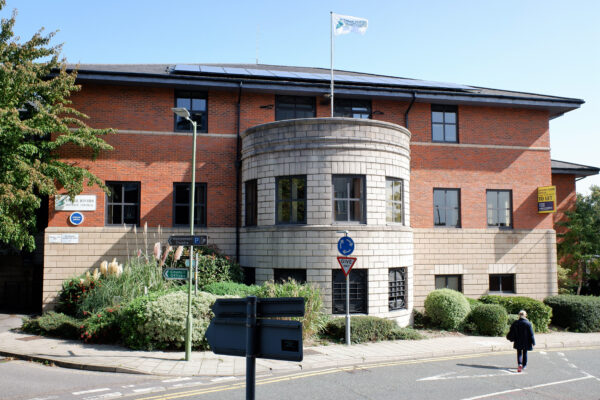High Court of Justice grants limited protest injunction from University of Cambridge after legal intervention
21 March 2025
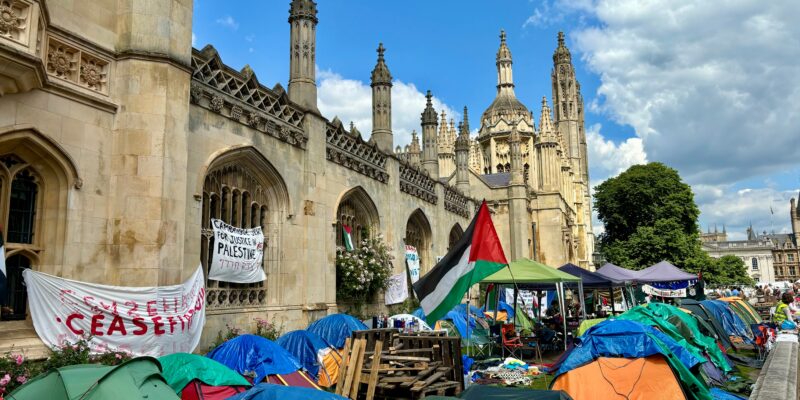
Garden Court North’s Mira Hammad was instructed to intervene in the University of Cambridge’s request, which initially sought a five-year injunction against pro-Palestine protests (pictured). Credit: Christopher Shelford / Shutterstock.
LONDON, 21 March, 2025: Earlier today, the High Court of Justice limitedly granted the University of Cambridge’s request for a four-month injunction against pro-Palestine campus protesters in a legal intervention by Garden Court North Chambers, Blackstone Chambers and Garden Court Chambers, instructed European Legal Support Centre (ELSC).
Mr Justice Soole’s decision to grant the University of Cambridge an injunction, albeit limited to only four months, has sparked concern regarding students’ right to freedom of expression and the erosion of protest rights. The intervention argued that the injunction violated freedom of expression and assembly under Articles 10 and 11 of the European Convention on Human Rights.
Legally speaking, the injunction encompasses all types of protest, but in practice it is directly intended to prohibit pro-Palestine protestors ahead of upcoming graduation ceremonies. Mr Justice Soole said there is an “imminent and real risk of a recurrence” of protests on campus and a “strong probability that this will otherwise occur” if the order is not issued.
Initially, the University attempted to secure a five-year ban on campus protests relating to Israel-Palestine. This was rejected by a judge on 27 February, 2025.
The injunction will restrict access to three key University of Cambridge sites frequently used for protests until 26 July, 2025. The University claimed that disruptions to three previous graduation ceremonies justified an injunction prohibiting all access to and protests on the land without the University’s consent, which campaigners said was an attempt to “silence students and academics”. Last year, pro-Palestine protesters staged demonstrations at Senate House Yard and Greenwich House which “forced” a graduation ceremony to be moved, according to University of Cambridge lawyers.
Amid continued demonstrations across UK universities, the judgement passed on the University of Cambridge’s injunction is expected to become a bellwether in future legal cases.
Anna Ost, ELSC Senior Legal Officer, said: “It is more important than ever to resist attempts to shut down protests for Palestinian liberation. The extent of the five-year injunction the University originally asked for demonstrated that they were seeking to restrict protests, which called out the University’s complicity in enabling genocide. Instead of acting urgently to review their investments, the University has stalled and sought to silence their critics with this injunction. We remain deeply concerned about the broader trend of universities using legal measures to target solidarity with Palestine.”
Ruth Ehrlich, Head of Policy and Campaigns at Liberty, said: “Today’s judgment sets a dangerous precedent which will severely restrict protest rights on campus. Students have long been at the forefront of movements for social change, whether in opposing apartheid or rising tuition fees. It is not right that universities are curbing students’ ability to do so, and creating a hostile space for people simply trying to make their voices heard. We urge universities to allow students to speak up for what they believe in on campus, and to protect the right to protest.”
Michael Abberton, President of Cambridge University and College Union (UCU) said: “It is disappointing news that the High Court has retained some of the most repressive elements of this order. We remain concerned that the order granted will have a chilling effect on our members exercising their rights to peaceful protest and we will be continuing our campaign to urge the University to end its use of the courts against its own students and staff.”
ELSC instructed Garden Court North Chamber’s barrister Mira Hammad, Owen Grenhall from Garden Court Chambers, and Grant Kynaston from Blackstone Chambers, in The Chancellor, Masters and Scholars of the University of Cambridge (Claimant) v Persons Unknown (Defendants) and the European Legal Support Center (Intervener).
This summary is provided for information only. It should not be relied on as legal advice.
For further information, please contact Alex Blair, Communications Manager at Garden Court North Chambers: ablair@gcnchambers.co.uk


